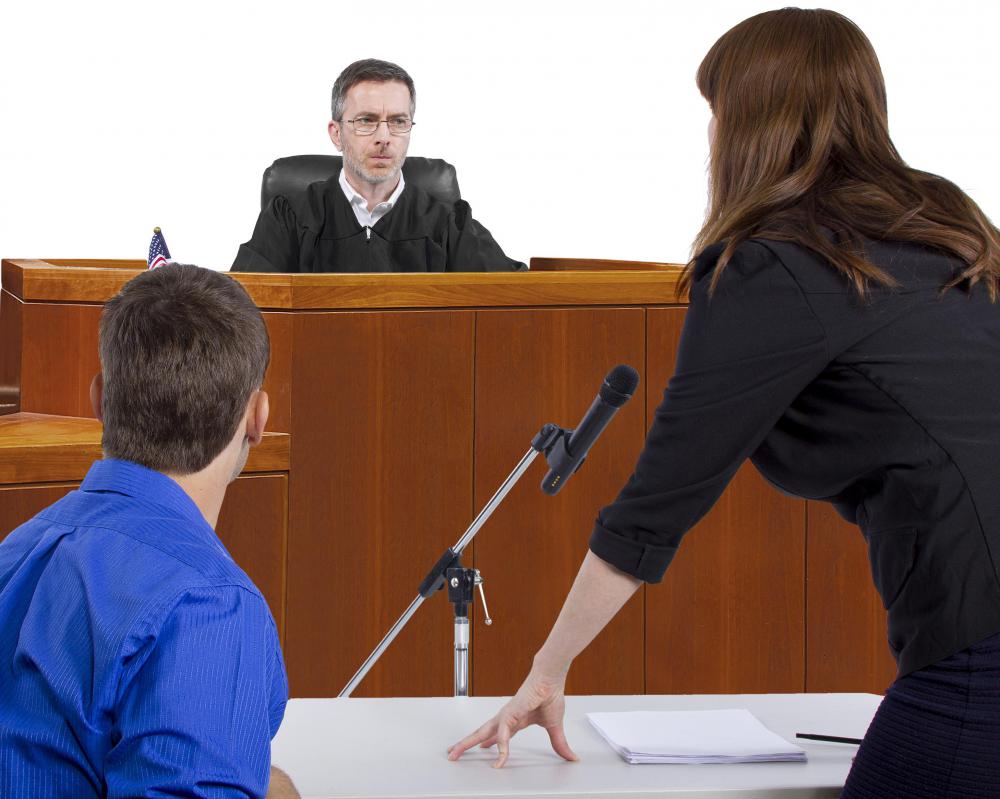At WiseGEEK, we're committed to delivering accurate, trustworthy information. Our expert-authored content is rigorously fact-checked and sourced from credible authorities. Discover how we uphold the highest standards in providing you with reliable knowledge.
What is an Examination Before Trial?
An examination before trial is a meeting where attorneys from both sides have an opportunity to ask a witness some questions in a controlled environment with a court reporter present to record the testimony. People may prefer the term “deposition” to refer to an examination before trial, depending on where a case is taking place. During this questioning period, people can collect information they will use in trial preparation, and in some rare cases, the testimony from the deposition can be read into the formal court record.
For an examination before trial to take place, someone must summon the witness to testify. Sometimes the testimony happens in court and at other times people may have a private meeting at a law firm or similar location. The witness is placed under oath to answer truthfully and accurately. Attorneys representing the parties in the case are present and can ask a series of questions. The length of time required can vary; sometimes, an examination before trial is very short. In other cases, it may last for hours or days.

In situations where there are concerns about whether a witness will be able to make it to the trial, people can use this as a chance to collect information they can enter into the trial record. The most common reason for this is in a case where a witness is terminally ill or very old, with a high probability of dying before the case goes to trial. Getting testimony from a sworn witness will allow people to enter that testimony into the evidence for trial.

People may also use an examination before trial if there are concerns about the health and safety of the witness. Children, for example, may be scared in court. In a deposition, people can ask questions in a more relaxed environment, and may submit this information in court in lieu of having the child actually appear. There may also be concerns about protecting the identity of a witness in a high profile case, leading to a suggestion to hold a deposition to collect evidence without forcing the witness to appear in court.
The oral testimony from the examination before trial is part of the discovery phase, where parties on both sides collect information about the case and have a legal obligation to share certain kinds of material they find. Sometimes, this phase results in revelations that lead the attorneys to try to negotiate a settlement or plea bargain. In others, it provides valuable information for trial planning to help people win their cases.
AS FEATURED ON:
AS FEATURED ON:












Discuss this Article
Post your comments